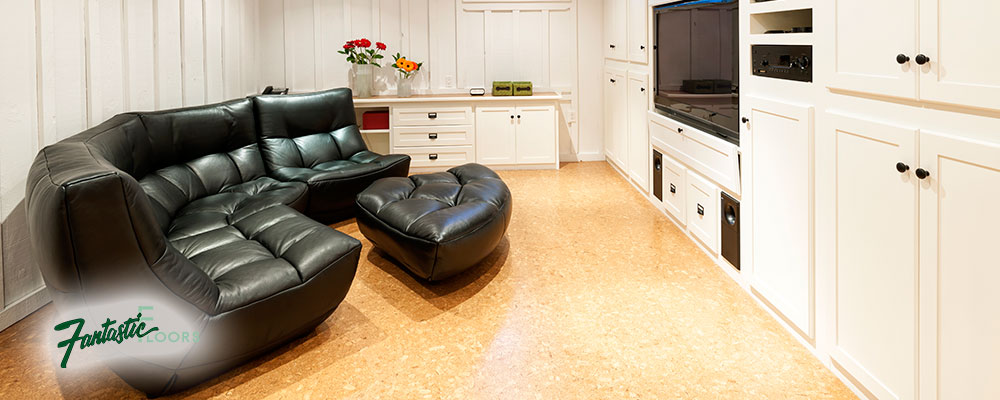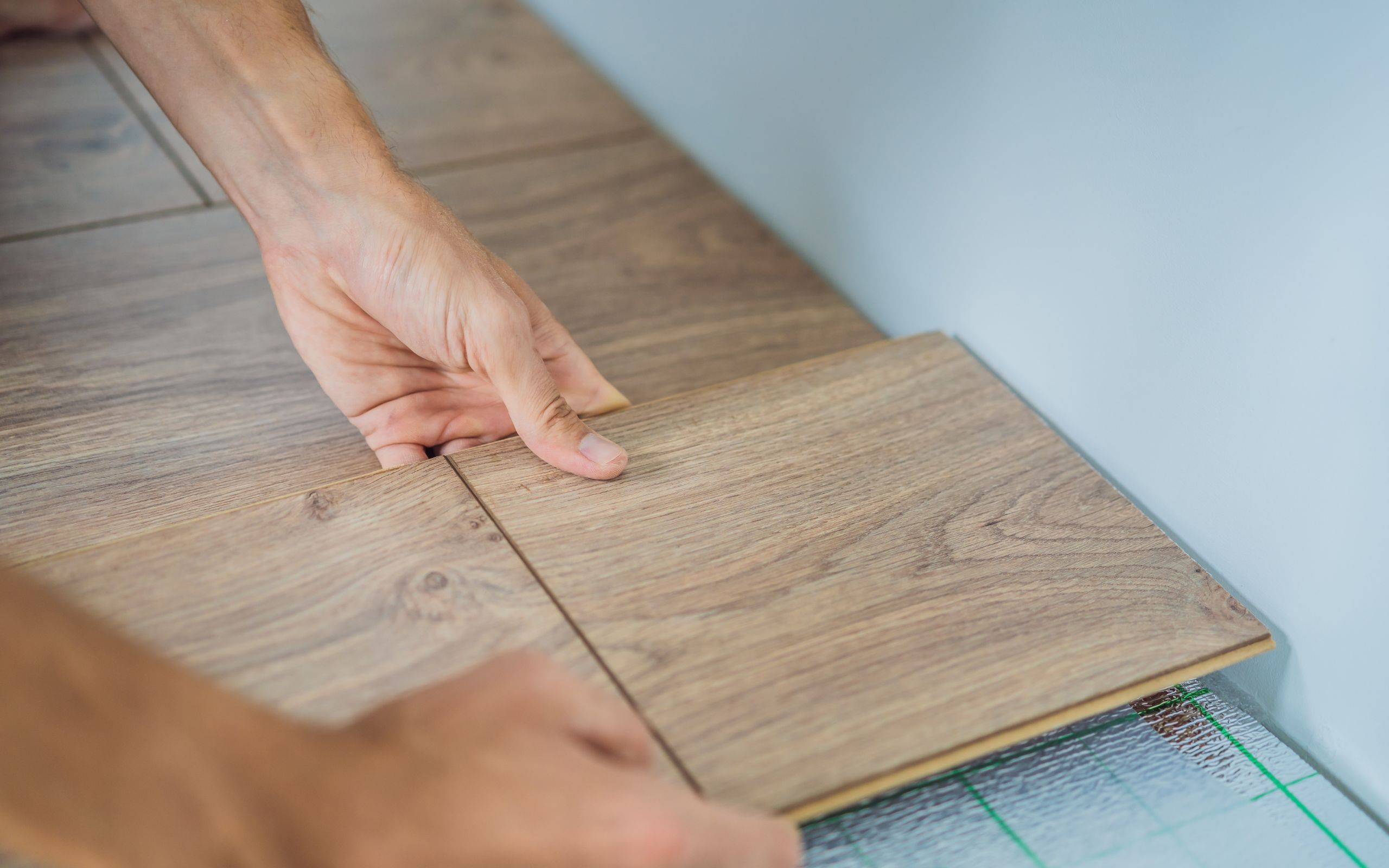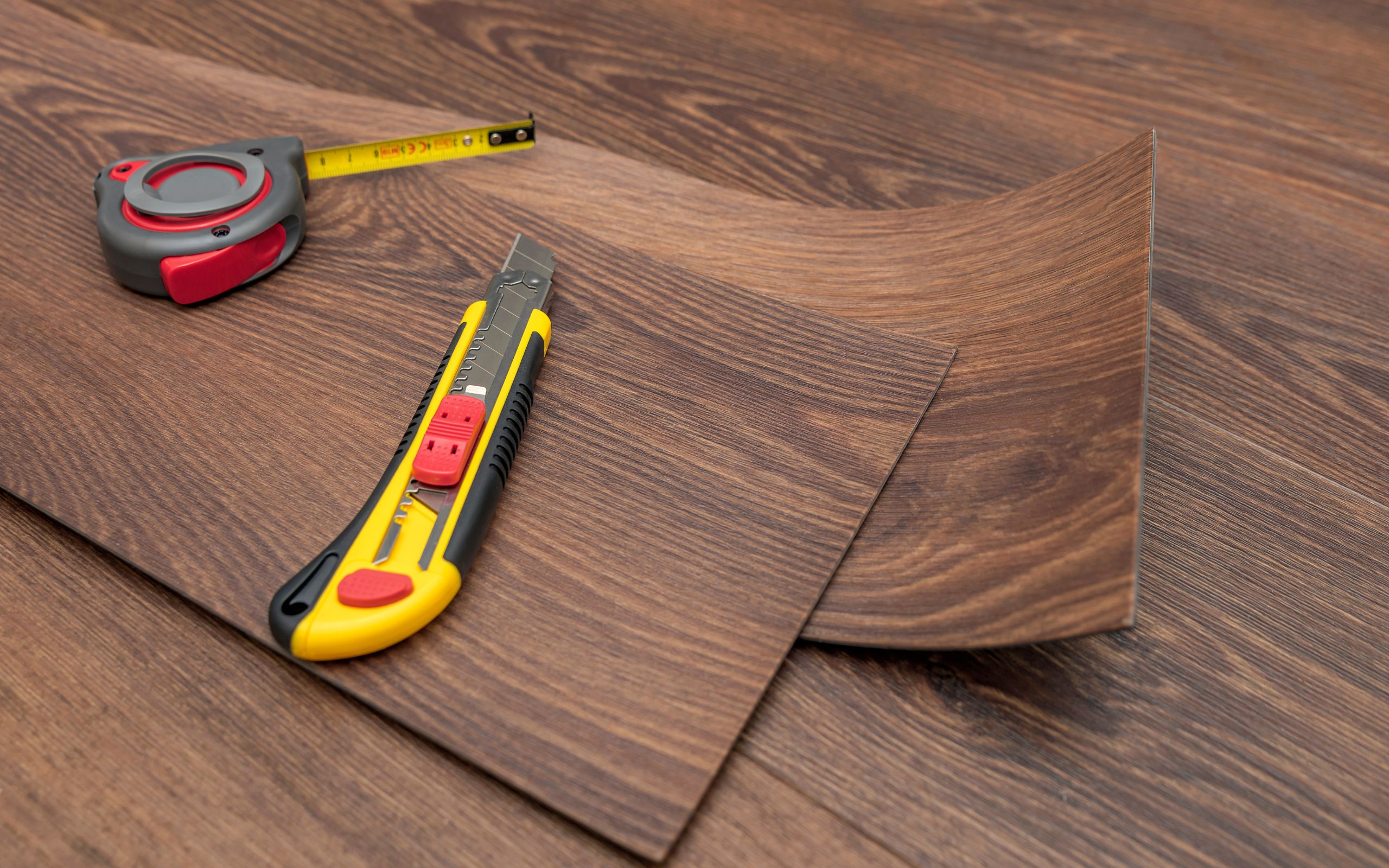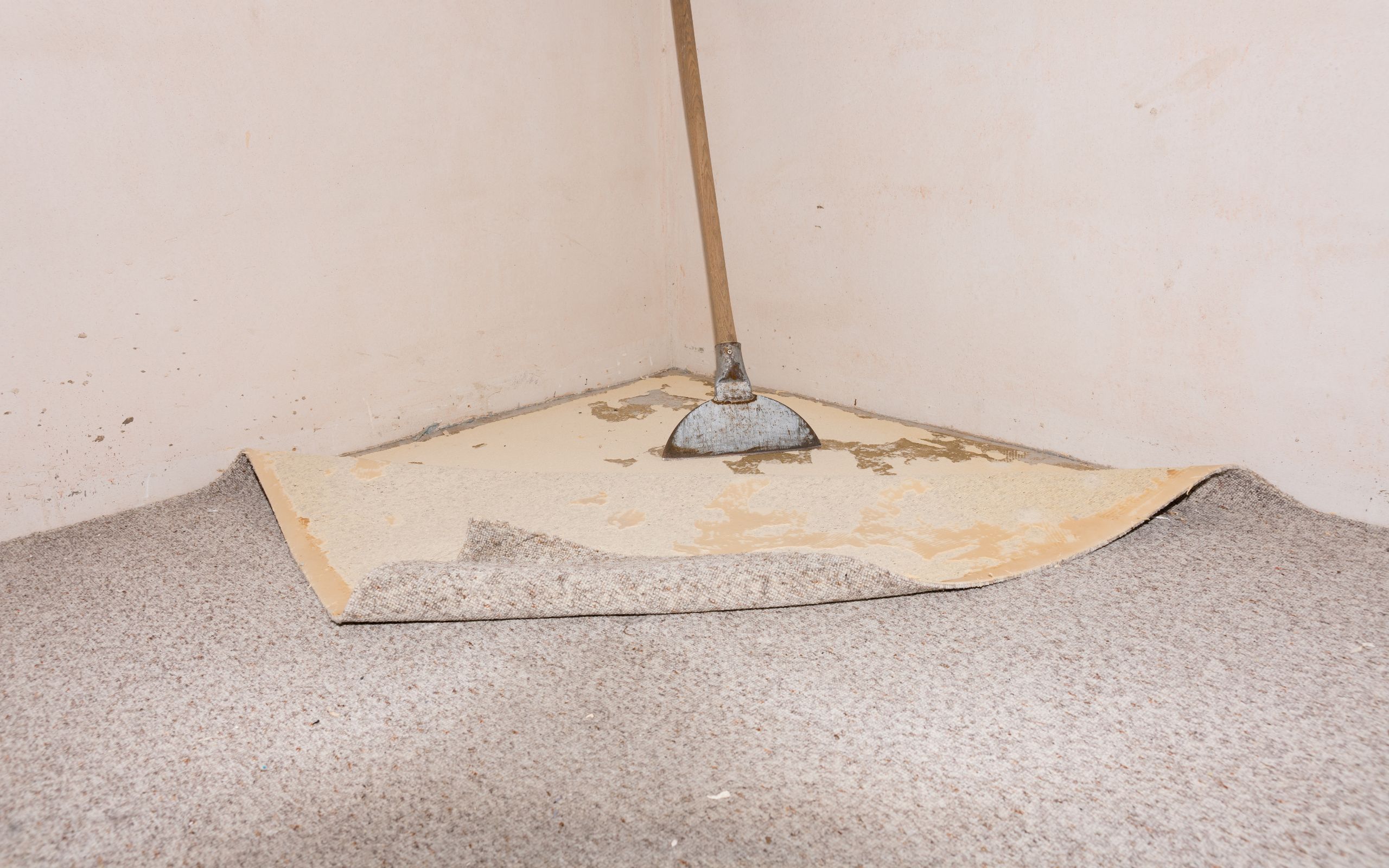Best Floor Installers in Houston
If you're looking for a definitive answer to the question, "Can I use cork flooring in a basement?," there's really only one source to ask: the flooring manufacturer. If a manufacturer recommends using its product below-grade—and they'll cover the flooring under warranty—go for it. Just be sure to follow the manufacturer's installation specifications to the letter so as not to void the warranty. The fact is, cork isn't ideal for basements because the flooring can be damaged by moisture, and basements can be very moist. But there are some installation tips that can helps.
The Problem With Basement Flooring
Apart from moisture due to flooding and wet foundation walls, concrete basement floor slabs can bleed moisture that migrates up through the slab. Even when a bare slab looks dry, it can have too much moisture on the surface for many types of flooring, including cork. And slab moisture can always change with the weather. For this reason, any flooring material that isn't inherently water-resistant, like ceramic or stone tile, should be installed over some type of moisture barrier. The standard barrier used under cork flooring is 6-mil polyethylene sheeting.
Cork Basement Flooring Options
The simplest and most widely recommended installation of cork flooring in a basement is a floating floor made up of click-together cork planks or tiles. These are engineered pieces, much like laminate flooring, that consist of a 3mm layer of cork sandwiched between a fiberboard backing and a waterproof surface wear layer. A floating cork floor should be installed over an appropriate moisture barrier followed by a moisture-resistant cork flooring underlayment approved by the flooring manufacturer. The underlayment is a layer of foam that gives the flooring some cushion and helps protect it from moisture below.
Traditional glue-down installations are not recommended for cork flooring in below-grade applications because the flooring must be adhered directly to the concrete basement floor, with no moisture barrier protecting the flooring. A better way to glue down cork in a basement is to start with a moisture barrier over the slab followed by a plywood subfloor. The cork is then glued to the subfloor. But given the difficulty of this type of installation, a floating floor is preferable for most situations. Plus, if a floor is ever damaged by flooding in the basement, a floating floor is much easier to replace than a glue-down floor.
Preparing for a Cork Basement Floor
There are few preparation steps and precautions to take before installing cork flooring in a basement, regardless of the specific flooring material or installation method.
- Follow the flooring warranty: Always check the manufacturer's recommendations for installing a material in a below-grade location before purchasing. Some cork suppliers will not recommend its use in these environments, and it may void the warranty on the product.
- Check the humidity: Check the humidity in the basement periodically over the course of a few days, especially during a particularly bad storm. If the average humidity is over 60 percent, you may have problems with the material expanding and contracting, causing issues with the floor tiles or planks popping up on you down the line.
- Keep the basement dry: If you have any type of flooring or other finish materials in a basement, you should do everything you can to try to eliminate moisture and humidity from the environment. Make sure that the concrete slab is completely smooth and free of any cracks that can let moisture in. You should also check the ground around the outside of the house and ensure that the ground slopes away from the structure. If a basement is prone to flooding, it may already have a drain system or a sump pump to deal with excess water. If not, consider installing a system to help prevent or minimize future flooding. As for humidity, a dehumidifier can help reduce moisture on an as-needed basis.
Source: thespruce
About Fantastic Floors, Inc. We are a successful company with more than 25 years of experience in the market, we have the infrastructure, high quality equipment, materials and supplies to achieve and exceed the expectations of our customers, allowing us to gain the confidence and loyalty for our services.
We have more than 500 residential, 300 properties and 25 commercial customers totally satisfied with our services.

Best Floor Installers in Houston.
Fantastic Floors, Best Carpet Installers in Houston, Best Floor Installers in Houston, A/C Duct Cleaning in Houston, Best Carpet Cleaning in Houston, Best Carpet Installation in Houston, Best Carpet Shampoo in Houston, Best Floor Installation in Houston, Carpet Cleaning Companies in Houston, Carpet Cleaning in Houston, Carpet Installation in Houston, Carpet Sale in Houston, Ceramic Tile Sale in Houston, Commercial Carpet in Houston, Commercial Flooring in Houston, Floor Installation in Houston, Flooring in Houston, Flooring Companies in Houston, Hardwood Floor Installation in Houston, Professional Carpet Installation in Houston, Professional Floor Installation in Houston





